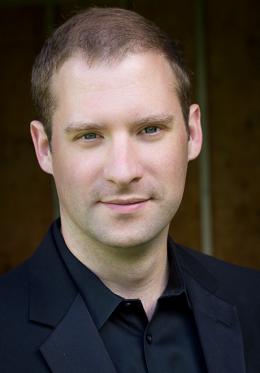Boston Cecilia celebrates Christmas with a Spanish accent

Winter concerts can be a toss-up between heartwarming yet well-worn music or unfamiliar works that leave the listener cold. Friday night at Church of the Advent in Boston, The Boston Cecilia and conductor George Case split the difference: lesser known choral pieces hit with the spirit of beloved standards.
“El Espíritu Navideño: The Spirit of Christmas” offered Christmas music from the Spanish Renaissance and Mexican Baroque as well as Latin American modernity. The 65 choristers united the range of eras and styles under their beautiful sound, technical polish and engagement with texts. Cases’s sensitive direction — especially his sympathetic tempos and dynamic sculpting — shed further light on this repertoire.
Balance between sections impressed from the outset with Tomás Luis de Victoria’s 1572 motet “O magnum mysterium.” Flowing polyphonic lines captured the awe of the ancient Catholic hymn about the miracle of Jesus’s birth in a manger. The so-called Spanish Palestrina pits smooth sectional dialogs against brief but unnerving wide intervals and dissonances in the mass setting based on his “O magnum mysterium.” The effect on Friday was like moments of inner fear between comforting exchanges.
Denser polyphony and sterner solemnity mark Juan Gutiérrez de Padilla’s Ave Regina a 8. Born in Spain near the end of the Renaissance, the Mexico-based composer frequently wrote for double choir. Unfortunately, spreading the chorus out along the aisles of Advent Church led to some loss of fluidity on Friday. The cascading voices were mostly lost in the wide space.
“Convidando está la noche” by Juan García de Zéspedes hails Jesus’s arrival on Earth, alternating gentle massed voices in pacific stanzas with several soloists over the lively guaracha rhythm of Spain via the Caribbean. The seventeenth century Mexican composer is an interesting example of an artist born and raised outside Europe, trained in a traditional conservatory, and absorbing ideas from the New World. While the 11 soloists were also overcome by the acoustics, the full ensemble audibly relished the rocking triple meter.
An arrangement of the traditional Spanish song “Ya viene la vieja” by modern American composer Alice Parker and her frequent collaborator conductor Robert Shaw showed off Boston Cecilia’s timing and humor. Popping wordless bass lines, snapping fingers and vocal patter about the titular old woman segued straight into contemporary Venezuelan composer César Carrillo’s setting of “O magnum mysterium.”
Carrillo’s motet was the most gripping performance of the evening: amidst majestic floating harmonies, Case hung the composer’s extended chords and suspensions for plenty of atmosphere without calculated theatrics. The chorus’s exclamations of “Beata Virgo” had the power and ease of a gospel choir. Each of the several concluding repetitions of “Jesum Christum” occupied its own unique musical space in terms of phrasing.
Contemporary American composer Conrad Susa’s Carols and Lullabies: Christmas in the Southwest from 1992 closed the program four centuries from where it started. Susa’s arrangement of ten folk songs from several regions of Spain as well as Mexico and Puerto Rico constantly changes tempo, rhythm, mood and timbre. Harp, guitar, and marimba and xylophone — here played by Krysten Keches, Berit Strong and Brian Calhoon, respectively — add further color, sometimes accompanying the chorus and at other times creating imaginative combinations with the voices.
“¡Oh, mi Belén!,” the cycle’s serene opening, featured sopranos singing just shy of a whisper and the ethereal texture of altos on top of the chiming instruments. Regardless of the tunes’ settings, rich sound and clearly delineated accents were constants. The same qualities animated “El Desembre Congelat,” an up-tempo narrative about the spring thaw set to a playful Catalonian beat. Back-to-back Spanish lullabies spotlighted different ends of the ensemble: the sopranos and altos in “A la Nanita Nana” ranged from shaded middle register lines to bright high notes, while the tenors’ firm grain and the basses’ cavernous pedals lulled “Las Posadas.”
“En Belén Tocan a Fuego” contrasted Alexandra Ghiz and Nicole LaConte’s plaintive sopranos and Nathan Salazar’s sweetly burnished tenor — all blissfully audible — with the chorus’s sing-song two-beat Castilian refrain. The softly lilting Mexican lullaby “El Rorro” closed the program with an exercise in restraint and controlled volume by this group.
“Silent Night” is heard in so many recitals and shopping malls, yet Boston Cecilia’s encore (in Spanish) made it a fresh experience. That may be a Christmas miracle in itself.
The program will be repeated 3 p.m. Sunday at All Saints Parish, Brookline. bostoncecilia.org; 617-232-4540.
Posted in Performances



